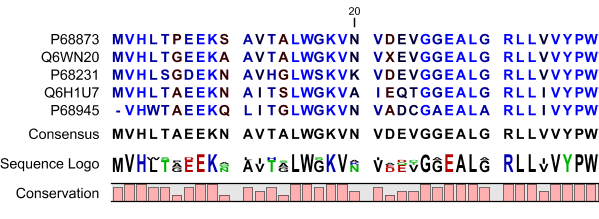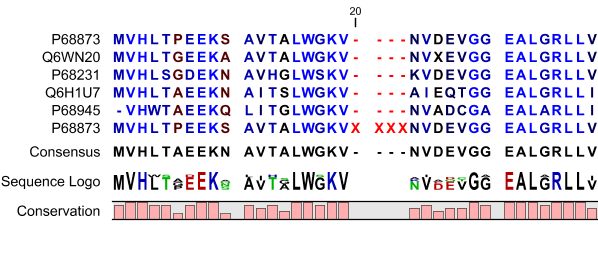Aligning alignments
If you have selected an existing alignment
in the first step (20.1), you have to decide
how this alignment should be treated.
- Redo alignment. The original alignment will be realigned if this
checkbox is checked. Otherwise, the original alignment is kept in
its original form except for possible extra equally sized gaps in
all sequences of the original alignment. This is visualized in
figure 20.5.

 Figure 20.5: The top figures shows the original alignment. In the
bottom panel a single sequence with four inserted X's are aligned
to the original alignment. This introduces gaps in all sequences
of the original alignment. All other positions in the original
alignment are fixed.
Figure 20.5: The top figures shows the original alignment. In the
bottom panel a single sequence with four inserted X's are aligned
to the original alignment. This introduces gaps in all sequences
of the original alignment. All other positions in the original
alignment are fixed.
This feature is useful if you wish to add extra sequences to an existing alignment, in which case you just select the alignment and the extra sequences and choose not to redo the alignment.
It is also useful if you have created an alignment where the gaps are not placed correctly. In this case, you can realign the alignment with different gap cost parameters.
